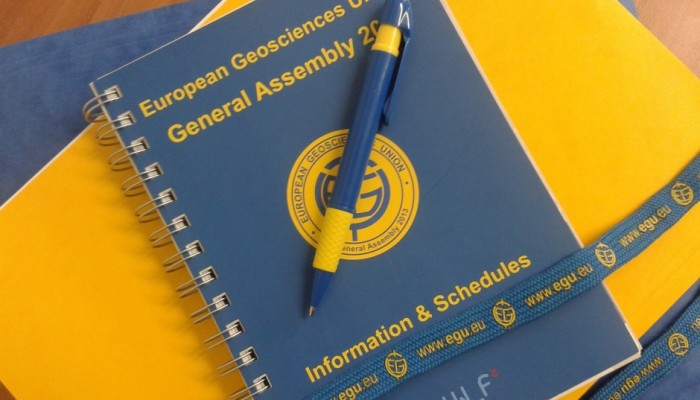
Whether you’re an experienced attendee of the EGU GA, or this is your first time there are always things to look out for, it is always worth attending your division’s division meeting, one of the great debates, and keep an eye out for short courses which may be of interest to you. Here are the recommendations from the Biogeosciences Blogging team:
The BG division meeting is Thursday from 12:15-13:15 in Room 1.61.
One short course that could be of interest is Analytical techniques for revealing the nature and chemical properties of natural organic matter on Friday 12:15–13:15 in Room 2.61
Another is Experiments in Geosciences Monday 10:30-12:00 in Room 2.97.
If your work involves samples acquired by drilling the “ICDP-IODP Town Hall meeting” on Tuesday 19:00-start in room G2 could be highly informative.
There are a number of workshops discussing different funding opportunities including the “European research council funding opportunities” on Tuesday with a 19:00 start in room 2.85.
On Wednesday starting at 12:15 is the EGU Early Career Scientists’ Forum in Room L7. One of our contributors (Rachael) is interested in Deep Life, especially in hard rocks.So she is interested in:
- Monday 8:45-start session entitled “Climate extremes, ecosystems and dynamic landscapes controlling biogeochemical cycles” in room M1
- Monday 17:30-start session “Fluid circulation in magmatic hydrothermal systems” in room L7
If any of your work involved CO2 storage the session on Thursday starting at 13:30 in Room 2.31 entitled “Field methods and analysis of field data for CO2 geological storage” could be interesting.
If you’re more into climate change related topics such global change ecology, one of our other contributors (Jasper) has some good picks for you:
- Session about climate extremes and their impact on biogeochemical cycles- monday from 10:30-12:00, room M1
- Session on the use of plant traits to understand changes in biogeochemical cycles – wednesday from 10:30-12:00, Room M
- Always wondered how carbon is allocated in plants and ecosystems? If yes, go to the session on plant carbon allocation, 15:30-17:00, room M1
- How can we use tree rings to understand responses of trees to climate change – thursday from 08:30-10:00, Room 0.3
Finally, it is always interesting to attend at least one session that is completely out of your comfort zone, so you can find out that some scientists are investigating even crazier things than you are currently doing. Our bet for this year’s general assembly: Mars science and exploration! Monday and tuesday from 8:30-10:00, room E1
Post written by Rachael Moore and Jasper Bloemen
